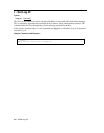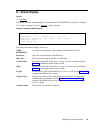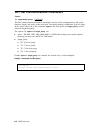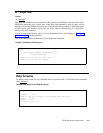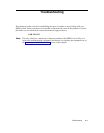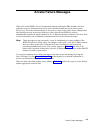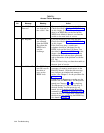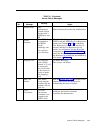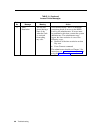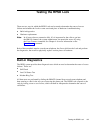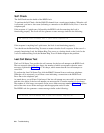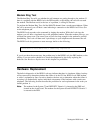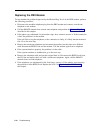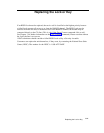
TABLE 5-1
Access Failure Messages
Code
No.
Message Meaning
Action
1
No RPSD/Key
No RPSD Key First test the RPSD Lock using the Self
Detected was detected on
Check described in Testing the RPSD Lock
the caller’s line.
in this chapter. If the Lock tests okay, and
there is an RPSD Key on the line but the
RPSD Lock failed to detect it, escalate the
trouble to the next level of service.
2
No Response
No response
First test the RPSD Lock using the Self
was returned Check described in Testing the RPSD Lock
from the RPSD
in this chapter.
Key when the
If the Lock tests okay, a touch-tone
RPSD Lock
telephone should be substituted for the
sent the
RPSD Lock and the Last Call Status Test
challenge.
described in Testing the RPSD Lock in this
chapter should be run to obtain any status
information the Lock may have generated
and to determine of the problem is with the
CO line.
If the CO line is okay, escalate the trouble to
the next level of service.
3 Invalid User ID
The RPSD Key Add the Key user to the user table if it is
user ID is not in someone you want to permit access to the
the table of
RMATS channel. (Note that this message
users on the
may indicate an unauthorized attempt at
RPSD Lock. access.) See Chapter 3 for the procedure for
adding users.
Check the Test Responses to make sure the
RPSD Lock and RPSD Key Test Responses
match (see Chapters 3 and 4 for checking
Test Responses). If access for this Key is
desired, and the Test Responses do not
match, you will need to use the Wipe Out
command (see Chapter 4, RPSD Key Use) to
return the Key to a virgin state. Then follow
the directions for initializing the RPSD Key,
also found in Chapter 4.
5-4 Troubleshooting



